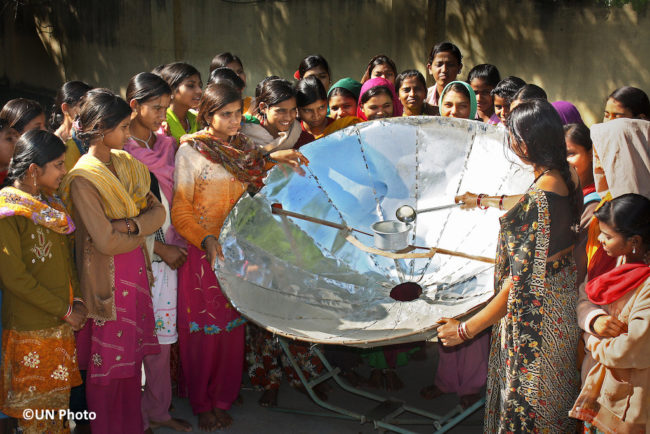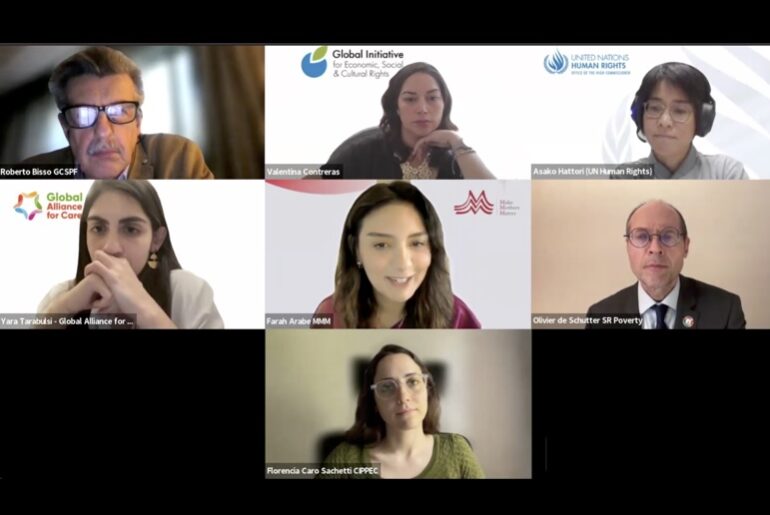Mothers in action against air pollution
05.03.19
UN Geneva, Human Rights Council - Addressing air pollution requires action at every level, including the household level where mothers can play a role.

Air pollution contributes to 7 million premature deaths annually. It has a greater impact on certain vulnerable populations, especially children. In developing countries, women suffer the most from household air pollution because of their primary role in cooking. It is in particular responsible for negative birth outcomes.
At the household and local levels, women, especially mothers, must not be considered only as victims: they can also be vectors of transformation, provided they are recognized as such, educated and supported in their multiple roles.
In developing countries, mothers can drive communities to adopt clean cooking technologies introduced by State programs. Around the world, countries that are engaging women in local communities and local governance are seeing positive results for the development of the communities.
In developed countries, where air pollution is mainly ambient, one English mother might set a precedent that could inspire the world. Her nine-year-old daughter, Ila, died in 2013 from asthma attacks. The family lived near London’s South Circular road, filled with diesel fumes. When she found out that her daughter’s attacks were correlated to air pollution peaks, she engaged in a battle to put air pollution on her daughter’s death certificate. The attorney general has backed her application and the High Court is being petitioned to authorize it. Rosamund Adoo-Kissi-Debrah is now running for London Assembly. She is just one mother who could change the course of air pollution.
Therefore, MMM calls upon empowering women in the fight against air pollution instead of seeing them only as victims.
MMM Oral Statement on women in action for the realisation of the right to breathe clean air
The statement was delivered during the discussion on the report of the Special Rapporteur on Human Rights and the environment, which took place during the 40th session of the Human Rights Council on 4th March 2019. The report of the Special Rapporteur focussed on air pollution and its Human Rights impact.
The New EU Gender Equality Roadmap : A Call for Inclusion of Mothers
04.03.25
The European Commission’s initiative on a new Gender Equality Roadmap post-2025, marks a significant step forward in addressing gender disparities across the European Union. Make Mothers Matter (MMM
Breaking the Cycle: Gender Equality as a Path to Better Mental Health
18.03.25
The Council of the European Union has taken a decisive step in recognising the vital connection between gender equality and mental health.
Europe Must Listen to Mothers: Our landmark report heads to the European Parliament
28.08.25
On 22 September 2025, the voices of mothers will take centre stage in Brussels. For the first time, Make Mothers Matter (MMM) will present its State of Motherhood in Europe








